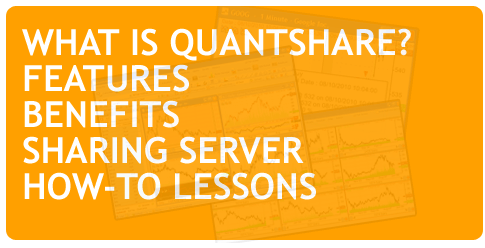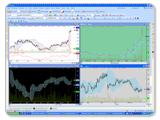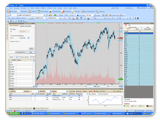However, if youíve ever felt the rush of a successful trade or the panic of a market downturn, you know that investing is far from free of emotion. Humans are naturally emotional animals and this is clear in all areas of life, including the stock market. Financial researchers have begun to study these ideas under the branch of behavioral finance. By understanding the different concepts of behavioral finance, youíll be able to manage your portfolio with a clearer head and be in a better position to take advantage of other investorsí emotional mistakes. Herd Mentality The obvious rule of profitable investing is buy low, sell high. While this is a painfully simple concept, many investors get stuck doing the opposite. Time and time again it seems that investors get swept away in a bubble and buy overpriced investments. When the bubble pops and the market crashes down, investors then panic and completely selloff their portfolio, causing them to miss the eventual market rebound. Investors continue to make this mistake because of our herd mentality. Humans in a group tend to move in the same direction and agree on the same ideas. After all, if everyone agrees that the market canít go down, how could they all be wrong? This makes it very difficult to take a different investment strategy, even if your analysis tells you youíre right. If you are ever feeling the pressure of the herd mentality, just look at the recent disaster of the housing bubble. Millions of investors lost a fortune because they got swept away in an asset bubble. Just because everyone believes something, doesnít make it true. Trust in your analysis, not in the groupthink of the herd. Overconfidence As an investor, it is important to be confident. If you donít trust in yourself and your decisions, it will be impossible to run your fund during the marketís ups and downs. However, while being confident is ok, it is crucial that you donít become arrogant. Overconfidence is a serious problem for fund managers. In a 2006 poll, 74% of professional fund managers thought they were above average managers. Since only half of the group could be above average, nearly a quarter of the polled managers were deluding themselves. If you are overconfident as an investor, you can get yourself into trouble. You need to keep a clear idea of your abilities, like knowingwhich investments and sectors you understand well versus the ones you donít. Overconfidence can make you think you can invest in new areas without the proper research and training. Overconfidence can also cause you to start trading for ego purposes. Your investment focus should always be on your long-term profit; not on showing you are better than other investors. If you have too much of an ego, you might start overtrading as you think you can profit off every minor market change. This will end up driving up your brokerage fees and could hurt your long-term profit margin. Confirmation Bias Related to overconfidence is confirmation bias. This is the tendency for investors to only look for information that backs up their ideas and ignore information that tells a different story. For example, say you found an exciting tech stock for your fund that your gut tells you is about to go through the roof. Confirmation bias might cause you to only look at the companyís growth potential and overlook the fact that is has serious cash flow problems that could bankrupt the firm. Before making an investment decision, force yourself to slow down and look at all the facts. Make sure you havenít overlooked any information because you are in a rush to make a decision. It might be helpful to ask the opinion of another investor before making a trade you feel particularly strong about. He might be able to spot some crucial information that you have overlook because of your confirmation bias. Prospect Theory If you are only concerned about the long-term profits of your investments, the way you feel about a loss or gain should be proportional to the size of the loss. For example, making $1000 should feel ten times as good as making $100. However, psychologists have measured that people have an irrational reaction to financial gains and losses. We tend to overreact to small gains or loss and underreact to large changes. This trend is known as the prospect theory. The prospect theory predicts that investors will make two kinds of mistakes. First, investors tend to sell off winning stocks too quickly. They feel ecstatic about making a small about of money. The idea of making more money wonít make them much happier but the fear of losing their gains terrifies them so they sell off their shares too early. On the other hand, investors tend to hold on to losing stocks for too long. When a stock has a small loss, investors feel terrible. The thought of losing more money doesnít bother them nearly as much as making their money back. Just like a gambler, investors will waste a fortune trying to break even. Be sure to keep both the prospect theory in mind as you manage your investment fund. If you are going to sell a winning stock or hold on to a losing stock, make sure itís because of your financial analysis and not because of your emotional desire. Conclusion At the end of the day, humans are not machines. It is impossible to invest in the stock market without feeling as least some emotion. However, by understanding how emotion and the ideas in behavioral finance affect your trading, youíll be able to stay more in control. This will help you follow a logical trading strategy and avoid the disasters of emotional investing.  Investing doesnít seem emotional? comments powered by Disqus |

|
|
|
|







